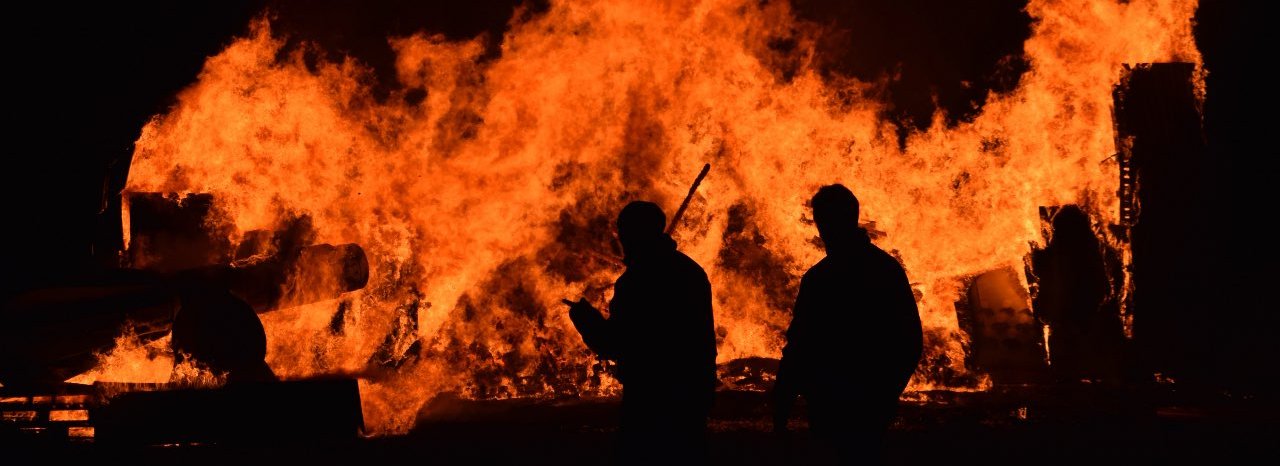| 6 mins read
While climate-induced displacement is no new phenomenon, we are currently witnessing the critical role it plays in migration. Thousands of homes in Australia have been ravaged by bushfires, with residents forced to evacuate as a result. Unprecedented temperature highs have led to an overwhelming increase in heatwaves and droughts, preceding the tragedy we see today.
The blazes in Southern New South Wales and Eastern Victoria are estimated to have destroyed over 2,000 homes thus far and have led to the deaths of around 1 billion animals. The responses and relentless efforts of citizens around the world - particularly those who are tackling Australia’s bushfires first-hand - demonstrate the most commendable and truly inspiring depths of humanity.
Yet, the crisis we see unfolding before us also requires us to face the most unbearable and hard-to-swallow truths. It demands that we recognise the damage humankind has inflicted upon the planet through our economic system; one which glorifies perpetual growth and excessive consumption at the detriment of the majority.
Writing for The Guardian, Lorena Allam described her anguish over the crisis in Australia as First Nations people are, once again, forcibly displaced: “Our ancestors felt it, our elders felt it, and now we are feeling it all over again as we watch how the mistreatment and neglect of our land and waters for generations, and the pig-headed foolishness of coal-obsessed climate change denialists turn everything and everyone to ash.”
The experiences of Indigenous Australians and how they are disproportionately impacted by climate change is largely omitted from the mainstream narrative on Australia’s bushfires. For both indigenous communities and those in developing nations, the exploitation of natural resources by those in positions of power has wreaked havoc on their land. Those in rural areas often bear the brunt of droughts and weather-related disasters, causing both internal and cross-border migration. As a result, the poorest and most marginalised communities suffer the most. Climate Migration reported that 70 per cent of all disaster displacement occurs in the poorest places.
Allam’s frustrations are justifiably directed towards those with the power to enact change - in this case, the Australian prime minister Scott Morrison. Morrison continues – despite the overwhelming evidence before him – to downplay the role of global heating in the current bushfire crisis. He is an ardent and vocal defender of the coal industry which is perhaps unsurprising when considering Australia’s status as the world’s largest coal exporter, with coal its most valuable export.
Indigenous Australians know more than most the consequences of extensive fossil fuel use. They continue to suffer a particularly devastating loss. As they have battled endlessly against settler-colonialism, the burning of their land and drying of their rivers engender a unique poignancy. Prior to colonisation, Indigenous Australians had managed their land effectively through traditional burning methods for thousands of years.
The incessant profit-seeking of the fossil fuel industry – which makes up 89 per cent of the world’s carbon emissions and is a major factor in global heating – will continue to generate mass migration across the globe. Those left with no choice but to evacuate their homes due to Australia’s bushfires have been labelled ‘climate refugees.’ The irony is, while the Australian navy helps to evacuate residents, its government regularly detains and turns away those who have suffered their own forms of involuntary displacement.
The Australian government treats those who seek refuge with the utmost contempt – including those who have undergone the same pain of displacement due to climate change. Human rights bodies have repeatedly criticised the government for its maltreatment of asylum seekers. Billions are spent on holding these vulnerable individuals in off-shore detention. In stark contrast, when Australia faces a crisis, it welcomes the aid of other countries, with US and Canadian firefighters immediately flocking to help.
The disparity in treatment of displaced people is not only morally devoid but unjust when looking at who is responsible for the acceleration of global heating that will continue to cause mass migration. The Global North has a habit of creating problems it refuses to deal with. The Bahamas, which was struck by Hurricane Dorian last year, contributes just 0.01 per cent in global carbon emissions. Bahamian refugees were offered little in the way of support from the US government.
Those who suffer the most by climate change have not reaped the benefits of post-industrial consumerism. It is an indictment of our economic system and how it necessitates global inequality. On 20 January, the UN’s Human Rights Committee ruled it unlawful to deport a person to a country where their lives would be at risk as a result of the climate crisis. Whether this will translate to robust protections for climate refugees is, regrettably, unclear considering the frequency with which nations fail to meet pre-existing international obligations.
One thing rooted in certainty, however, is the continued escalation of displaced people as a direct result of global heating. National leaders must step up to the mark, taking both action and, perhaps most importantly, responsibility.

